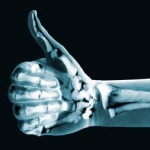For many decades, treatment of cancer has relied on three major modalities: surgery, chemotherapy, and radiotherapy. As a radiation oncology researcher, I am fortunate to be at the University of Missouri, where considerable emphasis has been placed on advancements among these three areas in targeted nanomedicine. Our university is the only one in the nation with a school of medicine, a college of veterinary medicine, and nuclear reactor powerful enough for specialized applications in cancer radiotherapy.
For many decades, treatment of cancer has relied on three major modalities: surgery, chemotherapy, and radiotherapy. As a radiation oncology researcher, I am fortunate to be at the University of Missouri, where considerable emphasis has been placed on advancements among these three areas in targeted nanomedicine. Our university is the only one in the nation with a school of medicine, a college of veterinary medicine, and nuclear reactor powerful enough for specialized applications in cancer radiotherapy. We are working on an initiative called One Health, One Medicine — the convergence of human and animal health care.
My experience in nanomedicine in research is comparatively new. I came to UM in 2000 as a member of the MU Mission Enhancement program — a forerunner to One Health, One Medicine — working in the Department of Veterinary Medicine and Surgery, to facilitate interdisciplinary research involving laboratory scientists and veterinarians. The idea was to bring new faculty members on board to build on the strengths of each campus, with a major emphasis on the life sciences.
Over the past two months, I have been working with Dave Robertson, the Associate Director for Research at MU’s Research Reactor. We have developed new nanoparticles containing a radioisotope of the element lutetium and attached to tumor-targeting peptides, supported by awards from the National Cancer Institute and the Department of Veterans Affairs and using facilities at the Harry S. Truman Memorial Veterans’ Hospital in Columbia, Missouri. We hypothesized that our nanoparticles contain large quantities of radioactive lutetium, packing a potent punch for tumor cell killing, as well as having several copies of the targeting peptide for enhanced delivery.
In a short time, we demonstrated that these nanoparticles selectively accumulate in lymphoma tumor cells. Our findings forward the mission and goals of One Health, One Medicine in comparative oncology, a field involving the study of cancer in animals (primarily companion animals), with direct translation of the results of those studies to human cancer diagnosis and treatment. With this promising development, we plan to study lymphoma-bearing mice, then pet dogs with lymphoma, and hopefully one day, clinical trials in human patients.
In the field of radiopharmaceutical sciences, there is an intimate relationship between diagnosis and treatment using radiopharmaceuticals. Take, for example, small lymphocytic lymphoma/chronic lymphocytic leukemia — an incurable form of cancer in a large majority of cases calling for innovative treatments. Nanoparticle radiopharmaceuticals represent such potential treatments. We hope our findings raise awareness of interdisciplinary science by bringing laboratory scientists and clinicians together to make new discoveries in collaboration.
image: medtech/shutterstock







